

Formative assessment is a cornerstone in effective teaching, providing invaluable insights into student understanding in real-time. Through common formative assessment questions, educators can engage students in constructive dialogues, fostering a conducive learning environment.
Immerse yourself in the subsequent sections to explore these facets in-depth and discover how ClassPoint can be an instrumental tool in executing these assessments seamlessly.
Formative assessment is a dynamic process nestled within the teaching and learning journey, acting as a mirror for both educators and students to reflect upon the ongoing comprehension and mastering of content. Unlike summative assessments, which evaluate the learners at the end of an instructional period, formative assessments are interactive transformative classroom management strategies that happen in real-time, during the learning process.
The essence of formative assessment lies in its name – it’s about forming a clear picture of each student’s progress, then tailoring the instruction accordingly to ensure every learner is on the right track. It’s not about the grades; it’s about understanding, engagement, and continuous improvement.
The beauty of formative assessment is its flexibility. It can be conducted in myriad ways, from informal observations and discussions to structured quizzes and interactive activities. And when it comes to questions, they are the catalysts, sparking the discussions, and inciting curiosity and reflection among the students.
Understanding the types of questions to utilize can significantly impact the formative assessment process. Here are some common formative assessment question types inspired by Bloom’s Taxonomy:
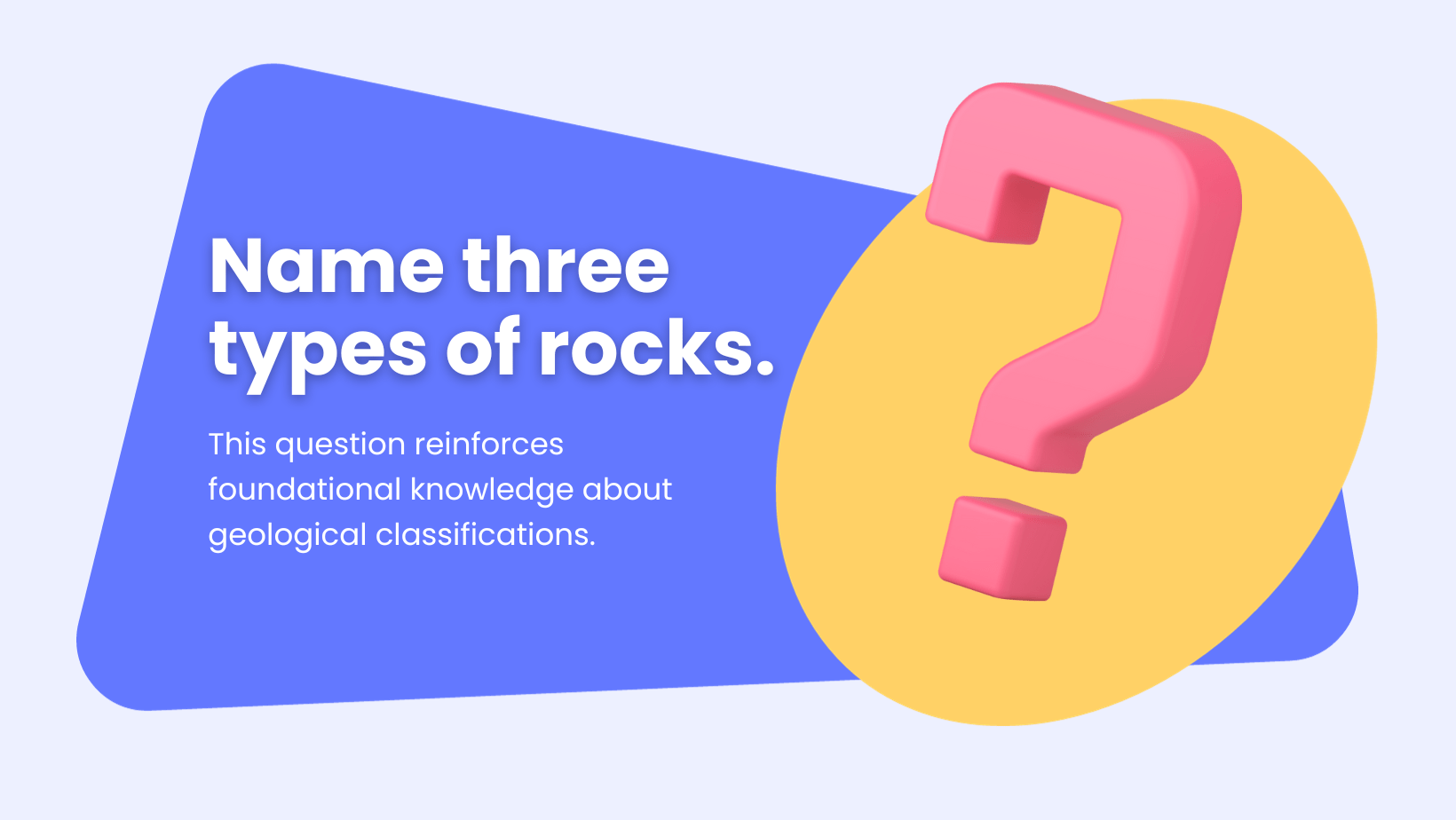
These questions are designed to help students retrieve and reaffirm the basic facts, figures, and concepts previously covered. They are straightforward and aim to reinforce the retention of foundational knowledge, ensuring that students have a solid grasp on the core elements of the subject matter.
This type of questioning is crucial for building a robust learning foundation before progressing to more complex levels of understanding.
How? Automatic Grading with ClassPoint
Assessing students’ recall ability on a topic can be effortlessly achieved by utilizing the perfect duo: ClassPoint’s Multiple Choice Questions and Quiz Mode.
Best for: Recall and recap questions are excellent for revisiting topics covered in previous lessons, ensuring that the foundational knowledge is well-embedded before moving on to more complex concepts. They are the stepping stones that assure students have grasped the basics, creating a solid ground to build upon further.
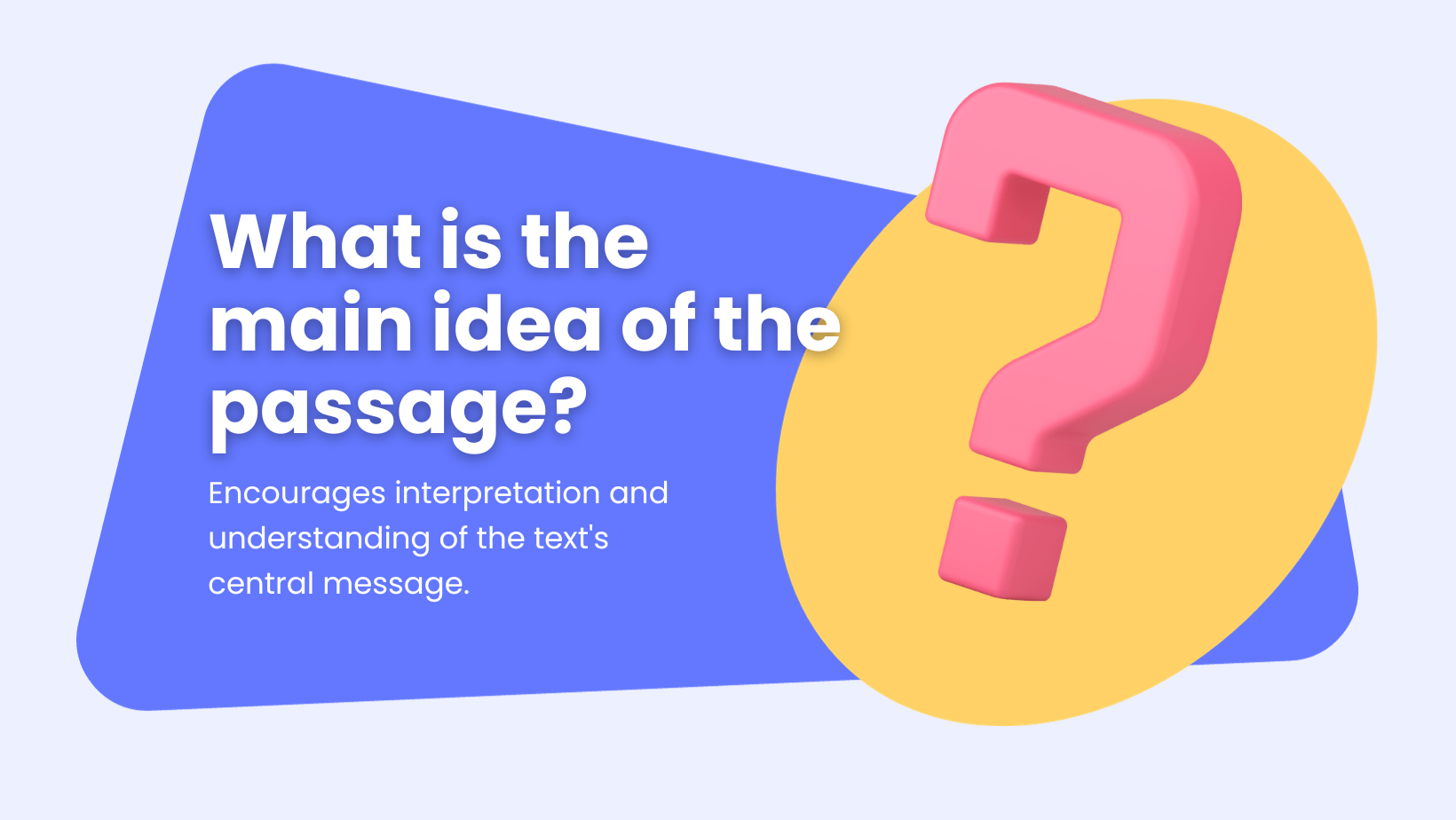
Delving a step closer to Cognitive Learning Theory, comprehension check questions require students to demonstrate a clear understanding of the topics at hand. They are crafted to encourage students to interpret, summarize, and explain the concepts in their own words.
This way, educators can gauge whether students have moved beyond memorization to a genuine understanding, which is essential for further learning and application of the material.
How? Comprehension Check with Short Answer in ClassPoint
Utilize ClassPoint’s Short Answer feature to delve deep into your students’ understanding and assess their comprehension effectively.
Best for: Comprehension check questions are suitable for gauging the depth of understanding, making them crucial in the early stages of learning new material. They act as a bridge from mere recall to the application and analysis of knowledge.
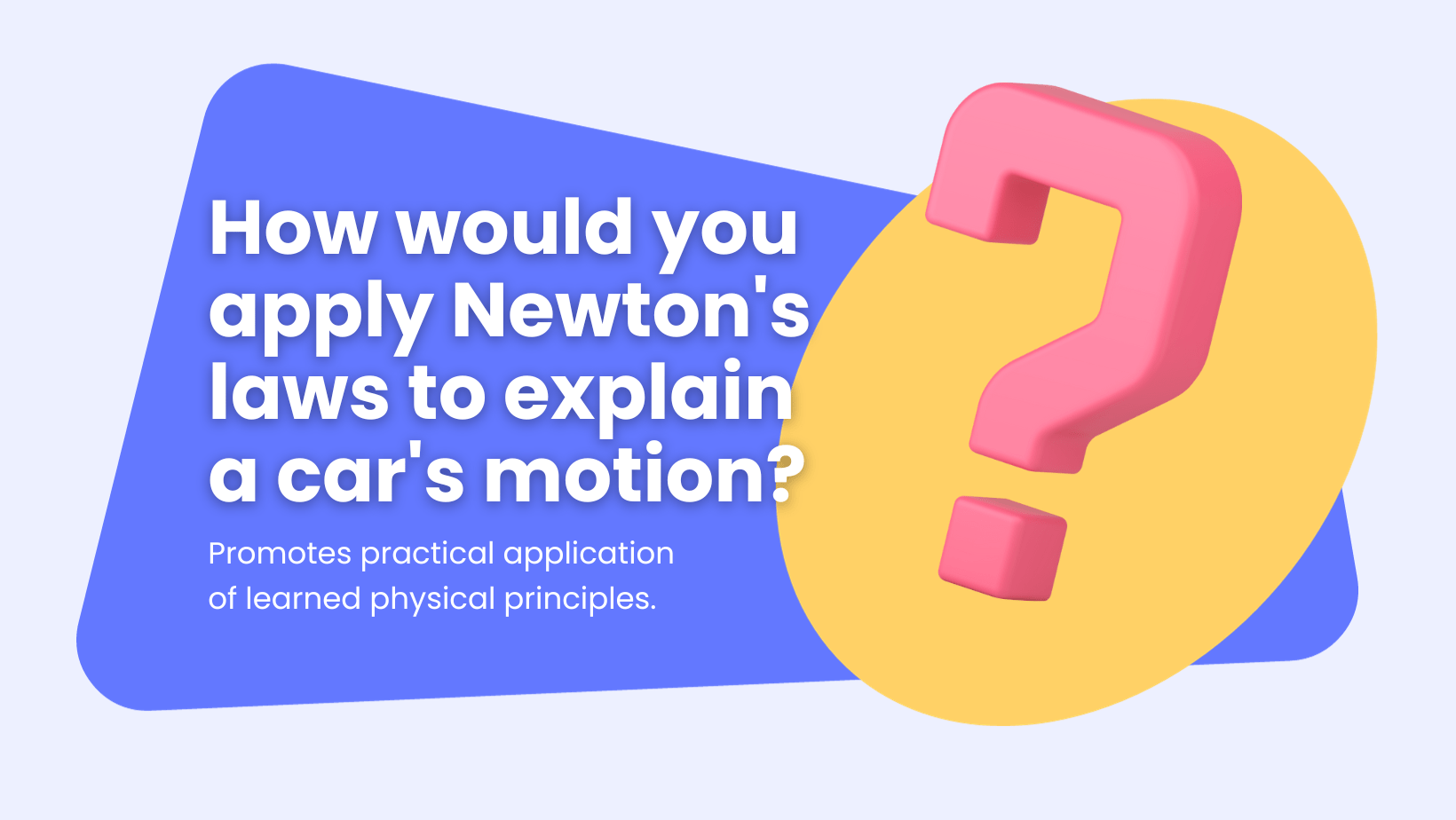
Application inquiries are tailored to stimulate critical thinking (much like Bloom’s Taxonomy Questions) by challenging students to apply learned concepts in new or real-world scenarios. They are pivotal in promoting problem-solving skills, encouraging students to think beyond the textbook, and adapt the knowledge acquired to tackle practical problems.
By navigating through application inquiries, students refine their analytical and problem-solving skills, preparing them for real-world challenges.
How? Implementing Application Inquiries with Embedded Browser in ClassPoint
The Embedded Browser feature in ClassPoint can be a game-changer for teachers looking to integrate real-world applications into their lessons directly through their PowerPoint presentations.
Best for: These questions are vital when transitioning from theoretical understanding to practical application. They encourage students to think critically and solve problems, fostering a deeper comprehension and long-term retention of the material.
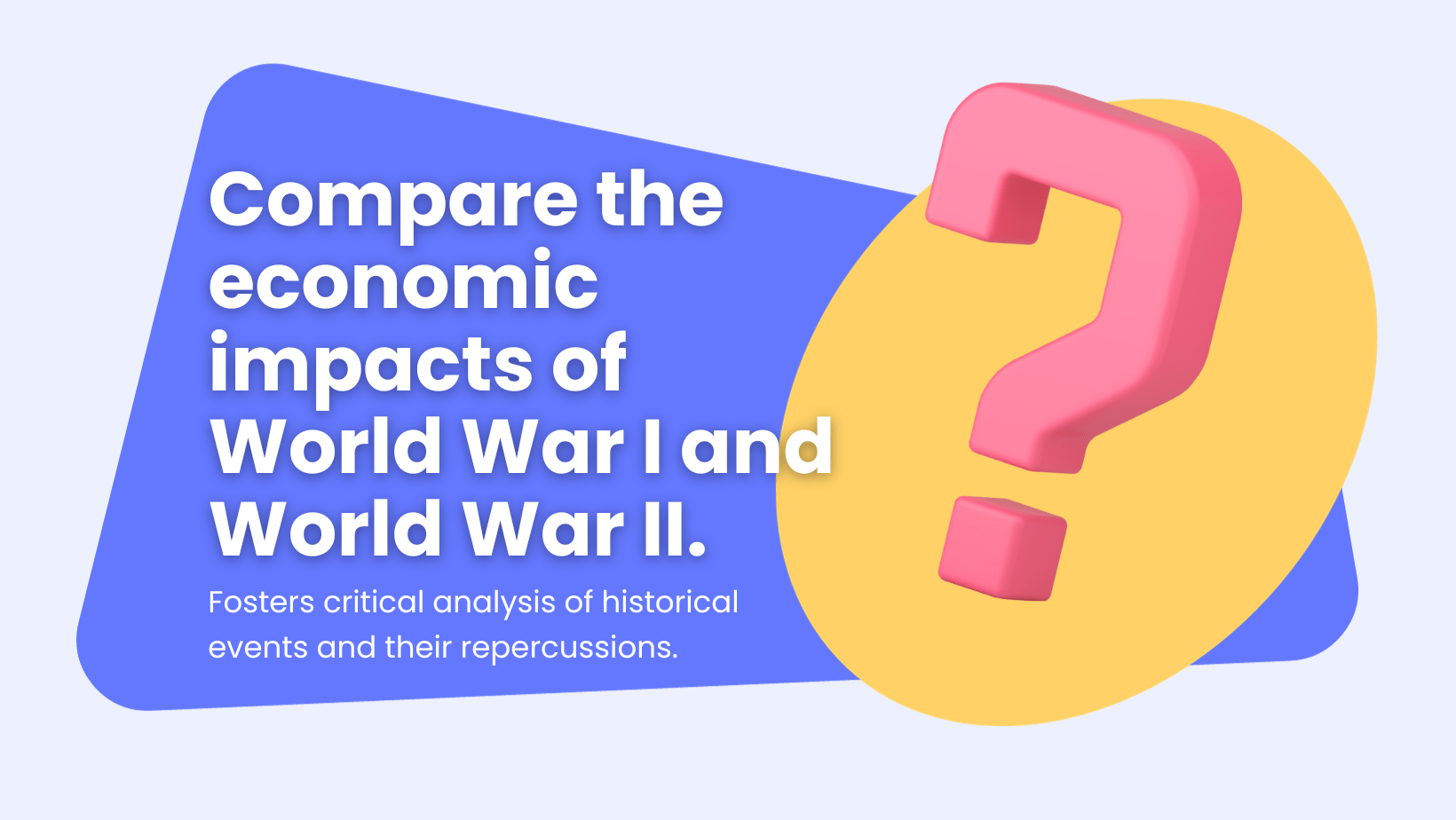
These questions are the catalyst for critical analysis and evaluation. They prompt students to dissect, compare, contrast, and evaluate concepts or methods. By engaging with analytical probes, students learn to think critically, evaluate different viewpoints, and justify their arguments based on evidence.
This cultivates a deeper understanding and a more profound engagement with the subject matter.
How? Implementing Analytical Probes with ClassPoint’s Mind Mapping and Annotation Tools
Fostering a deep understanding and analytical thinking in students can be achieved with the integration of ClassPoint’s Annotation Tools in your presentations.
🔥 Pro Tip: You can also utilise Draggable Objects to drag and drop any elements and texts around during slide show mode to enhance interactivity of your mind mapping lesson.
Best for: Analytical probes are best for cultivating a critical mindset and encouraging discussions that delve beneath the surface. They are essential in subjects where critical analysis and discussion are crucial for a deeper understanding.
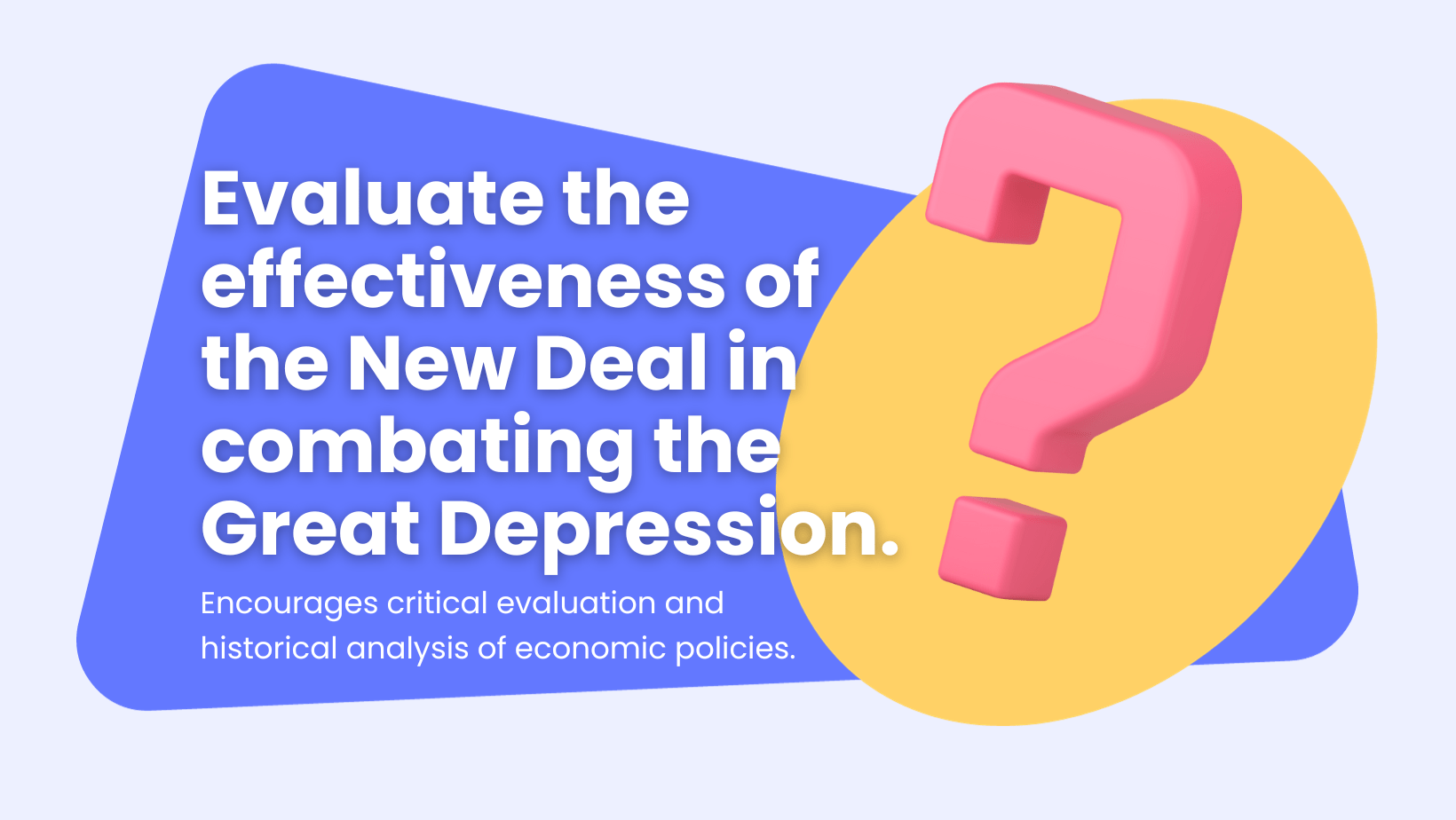
Evaluative challenges propel students into the realm of critical evaluation and judgement. They are devised to encourage students to form and defend their opinions, assess the effectiveness of different approaches, or critique a particular concept or method.
By tackling evaluative challenges, students refine their ability to think critically and make well-informed judgments, which is a vital skill for academic and real-world success.
How? Facilitating Evaluative Discussions with ClassPoint’s Name Picker and Timer
Incorporate evaluative challenges in your classroom to foster critical thinking and articulate expression using ClassPoint’s Name Picker, and Timer tools.
Best for: Evaluative challenges are essential for developing a critical eye and forming well-informed opinions. They prepare students for real-world scenarios where evaluation and decision-making are key.
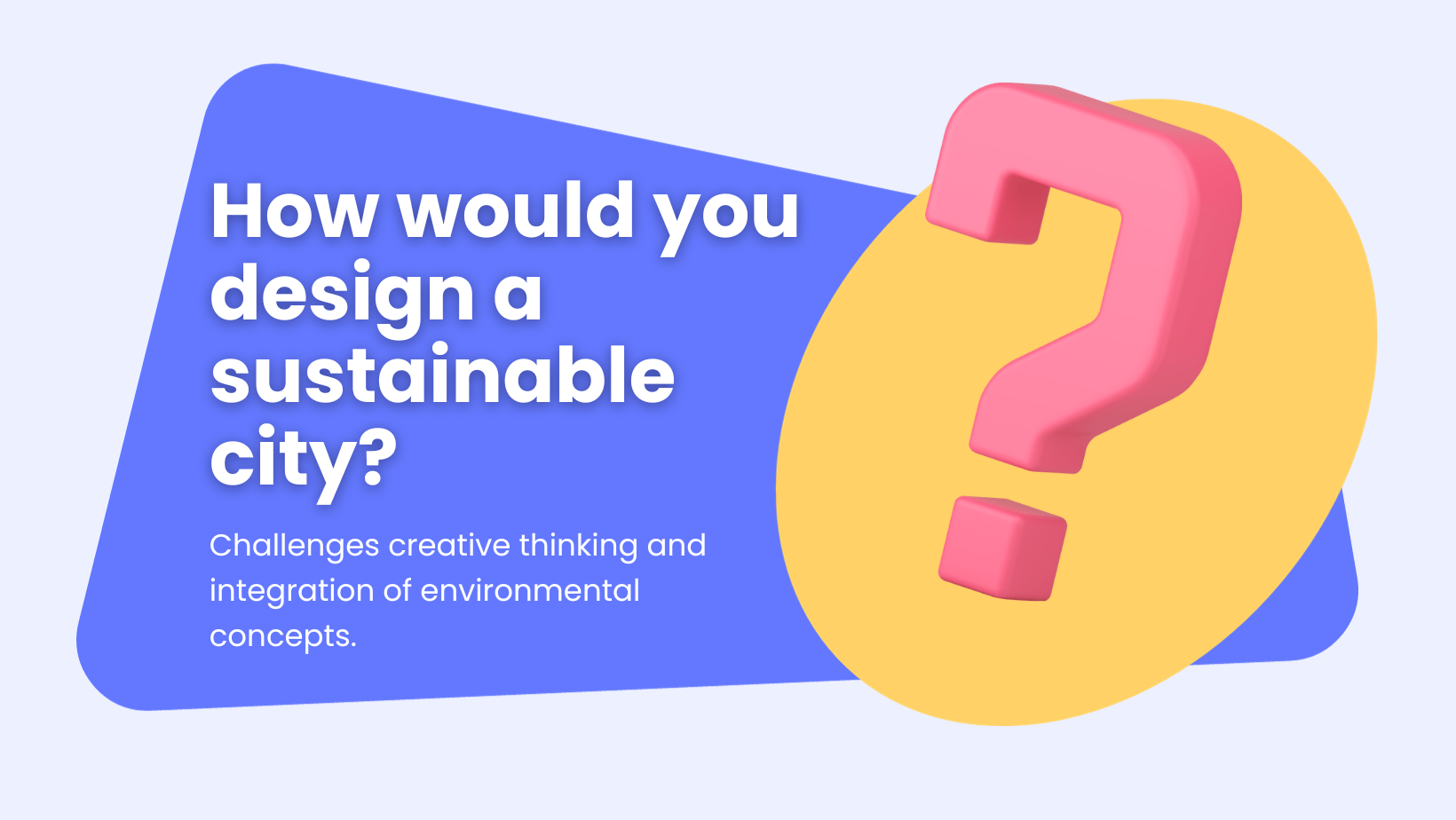
Synthesis queries are engineered to spur creativity and innovative thinking. They challenge students to merge different pieces of information or concepts to create something new or propose a solution.
This type of questioning fosters higher-order thinking, encouraging students to traverse beyond the conventional boundaries of the subject matter and explore innovative solutions or ideas.
How? Implementing Synthesis Queries with ClassPoint’s Word Cloud
ClassPoint’s Word Cloud feature is a fantastic tool for engaging students and encouraging them to synthesize information collaboratively.
Best for: Synthesis queries are the essence of innovative thinking, pushing students to merge various pieces of knowledge to create something new. They are crucial for projects and subjects that require a creative or integrative approach.
ClassPoint isn’t just about the manual input; it’s also about smart, automated insights. ClassPoint AI can significantly enhance the way formative assessments are conducted, making the process more insightful and less cumbersome for educators.
Read here for a full guided tutorial on how to create an AI-generated quiz in PowerPoint.
Embracing common formative assessment questions is a stride towards a more interactive and insightful learning environment. The next step is leveraging tools that make this process intuitive and engaging.
Try ClassPoint for free today and experience how seamless formative assessment can be when infused with interactive and engaging tools. Your journey towards a more engaging classroom is just a click away.
Mikel Resaba is a seasoned content strategist and writer specializing in EdTech. With over a decade of experience, Mikel has collaborated with startups and established companies alike to enhance digital learning experiences. Passionate about the transformative power of education technology, his writing offers valuable insights into effective e-learning practices, emerging trends, and the impact of digital tools on pedagogy. Mikel's work serves as a bridge between educators and technologists, aiming to foster environments where students and teachers can thrive.
All-in-one teaching and student engagement in PowerPoint.
800,000+ people like you use ClassPoint to boost student engagement in PowerPoint presentations.
The #1 teaching and student engagement tool in PowerPoint.